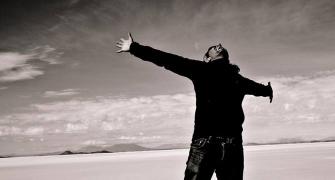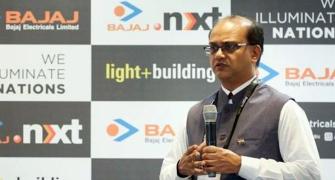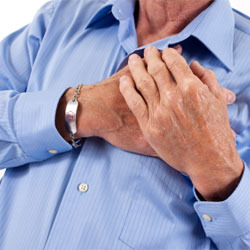The 'Save Heart Initiative' has treated 8,000 patients through unique forms of medical consultation.

Kashmir is usually in the news for all the wrong reasons, but lately Kashmir's brightest students and the state's football team have been creating waves.
Online, another team has been making a difference, working around the clock to provide health care in the remotest areas of the border state.
Jammu and Kashmir has one of the most difficult terrains among all the states of India. A journey of 100 km could take more than six hours as the road winds through valleys and mountains. Not the ideal situation if you are faced with a life-threatening condition.
Two years ago, three doctors started a WhatsApp group to coordinate with each other when they came up with a patient who had had a heart attack.
Remember, in a heart attack the golden hour, which is the first hour, is the most important and a patient can be saved if he or she receives medical attention within that hour.
Dr Nasir Shamas, Dr Imran Hafeez and Dr Muzaffar Zargar were the three doctors who started the WhatsApp group called 'Save Heart Initiative' and started offering guidance to doctors in remote areas through WhatsApp messages.
This was in 2016. Today there are three such groups with more than a thousand doctors connected with each other.
How does this work?
In Jammu and Kashmir there are primary health centres, taluk level hospitals, district hospitals and then the well equipped, ready for everything hospitals in the capital, Srinagar.
When a patient comes to a doctor complaining of chest pain, her/his ECG is immediately sent to the group on WhatsApp. Senior doctors look at the ECG results and offer advice on what needs to be done immediately.
If needed the patient is moved to the nearest hospital where the treatment s/he needs is available.
Hospitals have ambulances which can do this without any problem to the patient. Serious patients who need surgery are shifted to the bigger hospitals after being given first aid.
"At no stage do we ever approach a private doctor or hospital, the spread of the government hospitals is good and we are there in all areas of the district," Dr Nasir Shamas tells Rediff.com's A Ganesh Nadar.
"We stick to government hospitals because we don't want the patient to be burdened with a bill. Everything is free."
"Initially." Dr Shamas says about the WhatsApp group, "it was an idea of three doctors, our aim was to use everything indigenous to help the patients. There was no money involved. We were all volunteers in this endeavour. The government came in later."
"They were so happy with our idea and the results it was producing that they endorsed it whole-heartedly, this helped a lot in spreading the network and message," Dr Shamas adds.
What happens when the Internet is shut down, which is a regular feature in the Kashmir valley?
"This happens in certain areas so the rest of the districts are still connected, but even if this avenue is not available we don't lose heart, we manage with phone calls," Dr Shamas says.
"The concerned doctor calls us and tells us about the patient's condition and ECG readings, and we advise accordingly."
What do they do when snowfall or landslides block access?
"The health department does not have helicopters for an emergency, but the district collectors do have them," Dr Shamas points out.
"If someone needs to be evacuated, the collector can call for a helicopter to bring people or patients to where they can be helped. Remember, these are ordinary helicopters, not the ambulance equipped ones," Dr Shamas adds.
How successful this endeavour has been can be seen from the fact that in the last three years almost 8,000 patients have been treated through consultation via WhatsApp.
Every Thursday, for the last couple of years, the three doctors have also been training health workers to recognise the symptoms of a heart attack, and how to give first aid. Radio and television shows also enlighten the public on symptoms to look for in a heart attack.
"We have not reached every remote village, but it is an ongoing exercise to create public awareness about cardiac arrests and other diseases," he says.
Is it true that doctors from Australia, the UK and US are also in the WhatsApp groups?
"They provide an overview and also inputs about advancements in treatment in the West. Also, when we are sleeping they are awake and so provide on time advice when needed," Dr Shamas points out.
"They are all Indians settled abroad, and they too are volunteers. This is an indigenous initiative that has taken wings to help the people without any added cost and without any outside help."









